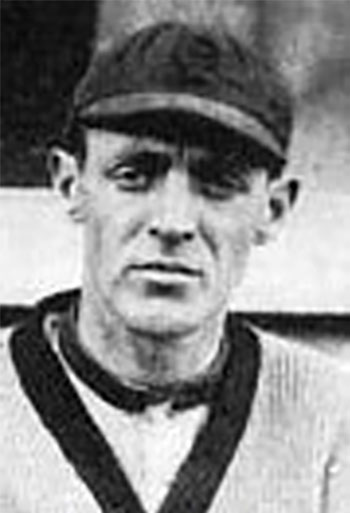A native of West Chester, Pennsylvania, Bayard Heston Sharpe was born on August 6, 1881, to Howard W. and Elizabeth (Carey) Sharpe. His father, a bricklayer, was a contractor who, according to the Los Angeles Times, "created some of the largest institutions in the Keystone State, among which are the State Normal School at West Chester [now West Chester University]." Also a sportsman, the elder Sharpe was a member of the West Chester Hunt Club.
Popular wherever he played, Bud Sharpe showed great promise on the field and later as a manager, only to die in his prime.
A tall and energetic man, the slender Sharpe stood 6' 1" and weighed 170 pounds. A right-hander, he was a minor figure in his 165-game major league career, posting a .222 average in two seasons (1905, 1910), while playing all but four of his games with the Boston Nationals. His six-year, 761-game minor league career was more successful; two pennants, a .264 average and a perennial fielding leader at first base. The Oakland Tribune called him "a perfect wonder at the bag... as a player he has a fast, dashing style which always draws the fans."
A combination of athletic ability, intellect, and modesty, Bud Sharpe made significant contributions outside of baseball, in part-time careers as an electrical engineer and a college instructor. When illness ended his playing career, Sharpe became a manager, leading the Pacific Coast League's Oakland Oaks to their first pennant in 1912. Of this triumph, the Oakland Tribune said "Temperamentally, he was an ideal leader; firm, but not too strict, quick to encourage and to inspire and yet capable of giving a negligent player a dressing down that would have its effect." In his hometown obituary, the Daily Local News was certain that "had he been able to retain his health, [he] would doubtless have become a manager equal to the best in America."
|

